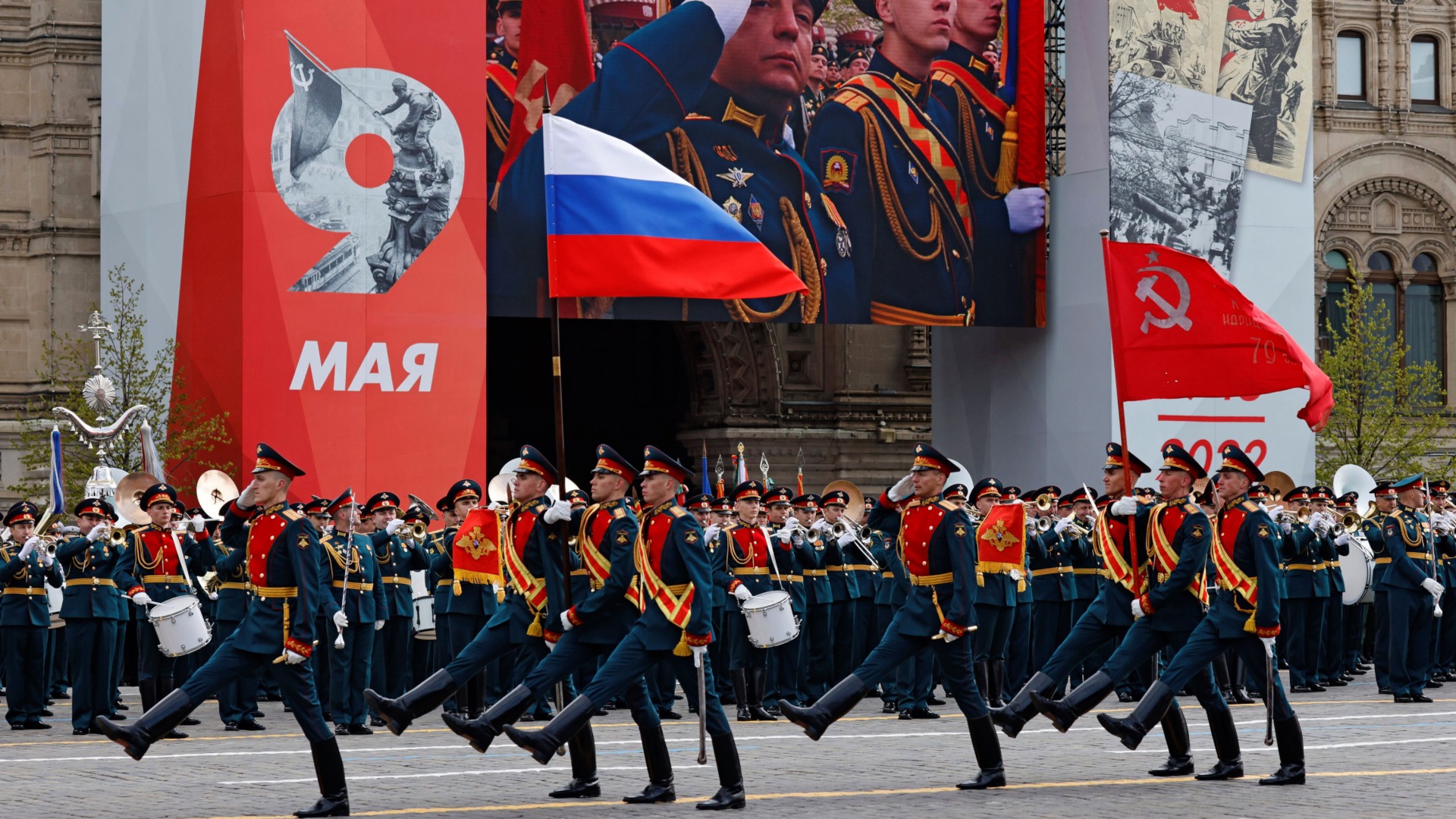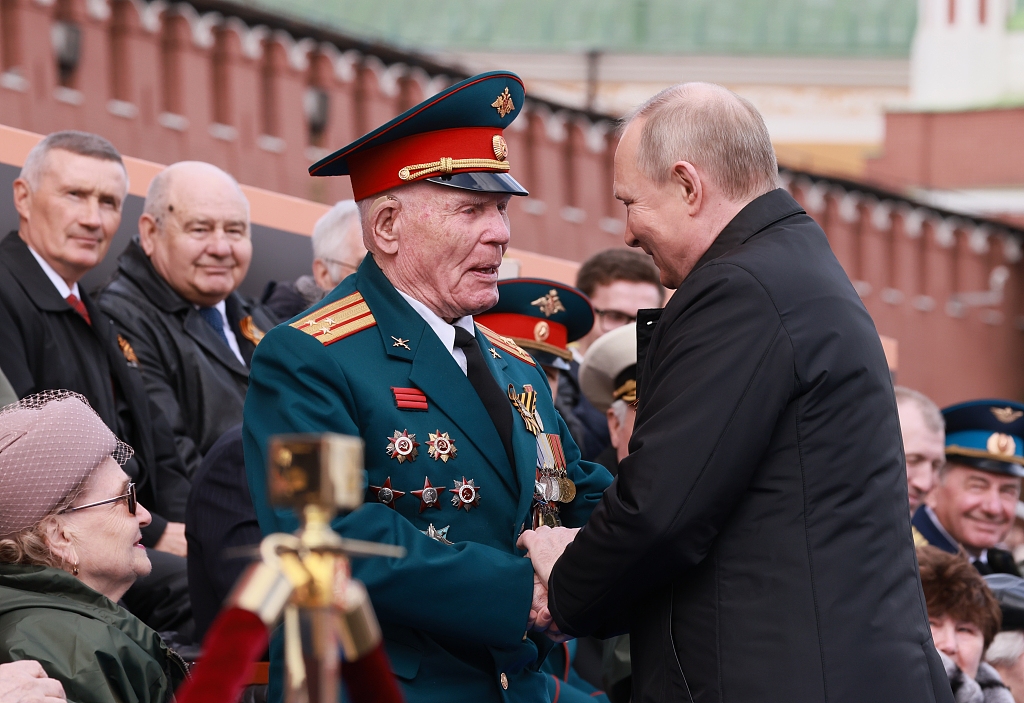02:28

Russia held its annual Victory Day military parade at Moscow's Red Square on Monday to mark the 77th anniversary of the Soviet Union's defeat of Nazi Germany in the Great Patriotic War.
This year's parade was closely watched worldwide as the Russia-Ukraine conflict continues. Russia launched what it describes as a "special military operation" in Ukraine on February 24.
Delivering a speech during the parade, Russian President Vladimir Putin said the operation was necessary and "timely," and had been provoked by the West. He said NATO and Ukraine were creating threats "unacceptable to us" on Russia's borders.
Russia "urged Europe to find a fair compromise, but they didn't want to hear us," Putin said, calling the operation a "right decision" of an independent, strong and sovereign country.
He told Russian military forces that they are fighting for the security of Russia. "You are fighting for your motherland, its future," he said.
"The death of every soldier and officer is painful for us," he said. "The state will do everything to take care of these families."

Russian President Vladimir Putin shakes hands with veterans before a military parade at the Red Square in Moscow, Russia, March 9, 2022. /CFP
Russian President Vladimir Putin shakes hands with veterans before a military parade at the Red Square in Moscow, Russia, March 9, 2022. /CFP
Up to 11,000 troops and more than 130 armored vehicles marched on the Red Square. The T-90M Proryv (Breakthrough) main battle tanks, S-400 air-defense missile systems and Yars thermonuclear intercontinental ballistic missiles were among weapons showcased during the parade.
In total, military parades were held in 28 Russian cities this year, involving almost 65,000 people, about 2,400 types of weapons and military equipment as well as more than 460 aircraft, according to the Russian Defense Ministry.
In December last year, Russia sent draft agreements to NATO and the United States on security guarantees in Europe for the Western countries to consider. Moscow asked Washington to prevent further eastward expansion of NATO and deny former Soviet republics accession to the alliance.
Russia also demanded that the U.S. and NATO do not deploy offensive weapons in its neighboring countries.
But Russia and the West failed to agree on the matter despite a flurry of diplomatic efforts.
The U.S. and its NATO allies have condemned Russia's military action in Ukraine and imposed sweeping sanctions on Russian organizations and individuals. Moscow has hit back with a series of retaliation measures.
In the latest move to increase pressure on Moscow, nations of the Group of Seven (G7) committed on Sunday to ban or phase out imports of Russian oil and the U.S. unveiled sanctions against executives of Russia's Gazprombank and other businesses.
Meanwhile, Western countries have been providing a large amount of military assistance to Ukraine. Russian forces have threatened to target those weapons.

